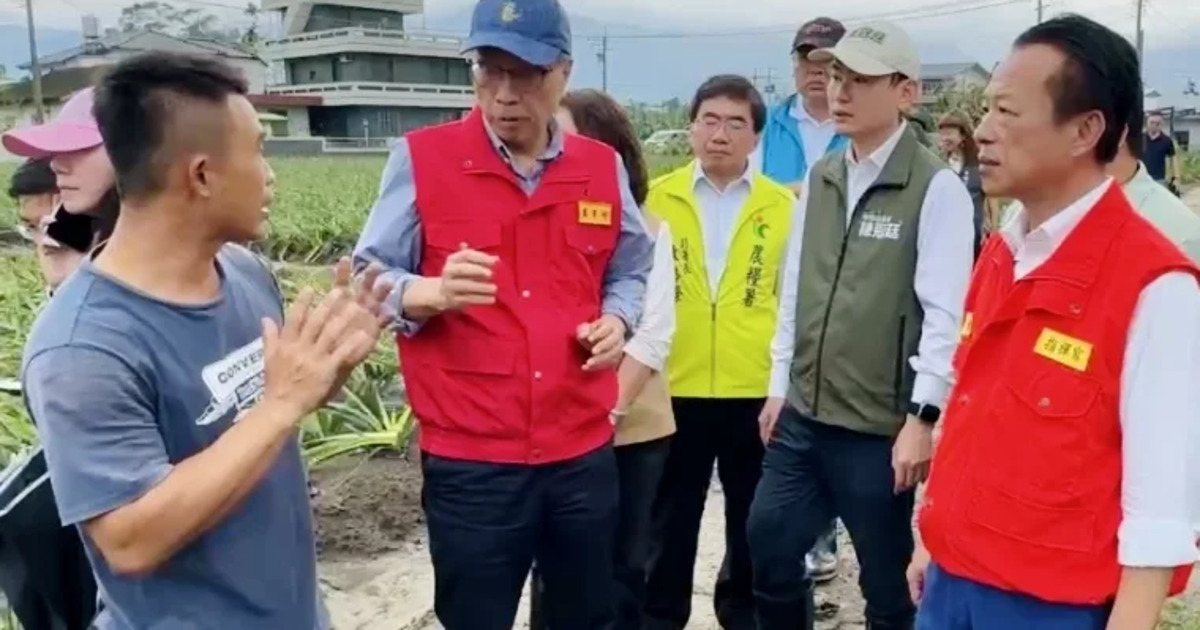TAIWAN, July 9 — The Ministry of Agriculture has released a preliminary estimate showing that Typhoon Danas caused over NT$1 billion in agricultural damages across Taiwan, with bananas and pomelos among the most heavily impacted crops. However, the issue quickly escalated into a political controversy as officials raised concerns over a recent NT$90 million cut to the Agricultural Special Income Fund, sparking debates over whether this would hinder disaster relief efforts.
Agriculture Minister Chen Junji addressed lawmakers at the Legislative Yuan’s Economic Committee, warning that the budget cut—approved earlier this year—might affect the government’s ability to respond to agricultural disasters in the future. He noted that although NT$90 million may seem modest, the natural disaster relief fund under the special fund often runs short annually, and future relief efforts could be strained without additional support from the Executive Yuan’s second reserve fund.
Chen’s comments drew swift backlash from members of the Democratic Progressive Party (DPP) and affiliated strike groups, who took to social media to criticize lawmakers from the Blue and White coalition (mainly the KMT and its allies) for cutting funds they described as “life-saving money” for farmers. Calls for accountability—even recall efforts—were made against legislators who supported the budget reduction.
Despite the heated rhetoric, critics argue that Chen’s remarks may have been politically motivated. The NT$90 million reduction represents just 0.2% of the total NT$37.2 billion agricultural budget and still leaves this year’s fund at NT$5.9 billion more than last year. Analysts also noted that in past years, when the fund was depleted, the Ministry of Agriculture successfully used alternative sources, such as borrowing from the Rural Regeneration Fund.
Former Council of Agriculture Chairman Lin Congxian had previously emphasized that the real issue lies not in temporary budget shortfalls, but in the systemic underfunding and overspending of the disaster relief fund year after year. Lin had urged broader adoption of agricultural insurance to better manage farmers’ risks.
Moreover, according to budget records, the NT$90 million removed by legislators was originally earmarked as a supplementary fund, not directly tied to natural disaster relief. Lawmakers had requested clarification on its intended use, raising concerns over transparency. They maintained that, under law, additional disaster relief funds can still be allocated through the second reserve fund if needed—meaning farmers’ rights and aid access would remain unaffected.
Critics also pointed out inconsistencies in the Ministry’s statements. While Chen claimed the budget cut would prevent access to the second reserve fund, the Budget Act actually allows exceptions for statutory or legislatively approved funds. The Ministry, they argue, only presented part of the picture.
Further adding to the skepticism, past data shows that budget execution rates for the Agricultural Special Income Fund have historically been low. In 2014, for instance, only 77.5% of allocated funds were used by October, despite the fund receiving a substantial increase that year.
Finally, observers questioned the timing of the renewed budget cut debate. While the DPP criticized opposition lawmakers for the NT$90 million cut, they remained silent on the over NT$1 billion spent on recall campaigns—a cost also covered by taxpayers and the Executive Yuan’s second reserve. Critics asked: if these funds can be used for political recalls, why not for actual relief efforts for farmers in crisis?



